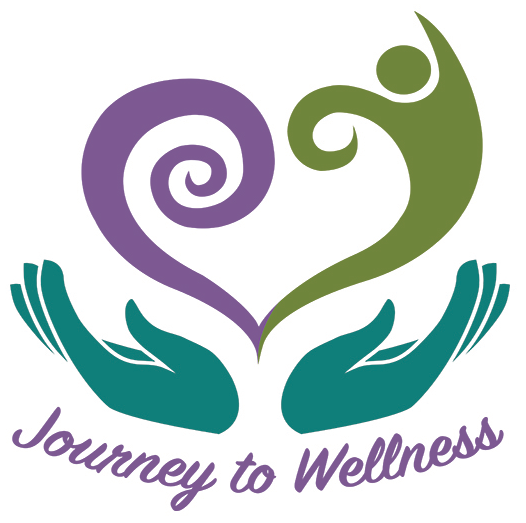What is Reiki?
Reiki is a Japanese energy therapy that is thousands of years old and focuses on body, mind, and spirit. The word Reiki is made of two Japanese words - Rei which means "Universal" and Ki which is "life force energy", it is based on the idea that an unseen "life force energy" flows around and through us and is what causes us to be alive. Energy can stagnate in the body where there has been physical injury or possibly emotional pain. In time, this “life force energy” can cause illness or increased stress. When our energy is high, we are more capable of being happy and healthy. Energy therapy aims to help the flow of this life force energy and remove stagnation in a similar way to acupressure. Improving the flow of energy around the body may enable relaxation, reduce pain, speed healing, and reduce other symptoms of illness.
To learn about rates for therapeutic massage services with Reiki or Reiki as a stand alone session, see massage rates or massage packages.
What can I expect with Reiki?
Reiki is a relaxing treatment wherein natural healing energy vibrations are transmitted through the hands of a Reiki practitioner (acting as a conduit) to the body of the recipient. The purpose of a Reiki treatment is to relieve stress and pain, induce relaxation, release emotional blockages, accelerate natural healing, and balance subtle body energies.
Reiki may be performed with a person who is fully clothed or can be incorporated into table massage or thai massage session. The practitioner will lightly lay hands on or off of your body in the surrounding energy fields. Most treatment follows along the seven chakras, or the body’s main energy centers.
A treatment feels like a wonderful glowing radiance that flows through and around you, feeling of warmth and tingling are often experienced. Many people fall asleep during this form of energy therapy. Reiki treats the whole person including body, emotions, mind and spirit creating many beneficial effects that include relaxation and feelings of peace, security and well-being. Following a Reiki session, it is not uncommon for patients to state they feel a deep sense of relaxation, feel refreshed, or find their symptoms have temporarily subsided.
Unfortunately, many studies on Reiki are antecdotal, low quality or poorly conducted. Some studies show slight benefit for pain reduction and relaxation, but results of these studies are inconclusive in terms of the benefit this therapy can provide for specific conditions. As a practitioner, who comes from a science-heavy background, it is challenging to wrap my head around just how this therapy works. I continue to look forward to new research. In a “first do no harm” mindset, if patients are experiencing positive effects, then what is the down-side to this technique? Below are just a few research studies on Reiki Energy Therapy.
Dyer, NL, Balwin AL, Rand WL. A Large-Scale Effectiveness Trial of Reiki for Physical and Psychological Health The Journal of Alternative and Complimentary Medicine, October, 2019; 25(12):1156-62.
Maxime Billot, Maeva Daycard Chantal Wood, Achille Tchalla. Reiki Therapy for Pain, Anxiety and Quality of Life. BMJ Support Palliat Care. 2019 Dec;9(4):434-438.
Melike Demir Doğan. The Effect of Reiki on Pain: A Meta-Analysis. Complement Ther Clin Pract 2018 May;31:384-387.
Maxwell T Vergo, Briane M Pinkson, Kathleen Broglio, Zhongze Li, Tor D Tosteson. Immediate Symptom Relief After a First Session of Massage Therapy or Reiki in Hospitalized Patients: A 5-year Clinical Experience from a Rural Academic Medical Center Journal of Alternative and Complementary Medicine, 2018 Aug; (24) 8: 801-808.
Farnaz Jahantiqh, Abdolghani Abdollahimohammad, Mohammadreza Firouzkouhi, Vahid Ebrahiminejad Authors.Effects of Reiki Versus Physiotherapy on Relieving Lower Back Pain and Improving Activities Daily Living of Patients With Intervertebral Disc Hernia. Journal of Evidence Based Integrative Medicine, 2018; 23:1-5.
McManus DE. Reiki Is Better Than Placebo and Has Broad Potential as a Complementary Health Therapy. J Evid Based Complementary Altern Med. 2017 Oct;22(4):1051-1057.
Ann Linda Baldwin, Anne Vitale, Elise Brownell, Elizabeth Kryak, William Rand. Effects of Reiki on Pain, Anxiety, and Blood Pressure in Patients Undergoing Knee Replacement: A Pilot Study. Holistic Nursing Practice, Apr/May, 2017; 31(2): 80-89.
Barbara Byrne Notte, Carol Fazzini, Ruth A Mooney Reiki's effect on patients with total knee arthroplasty: A pilot study. Nursing, February, 2016; 46(2): 17-23.
Kurebayashi LF, Turrini RN, Souza TP, Takiguchi RS, Kuba G, Nagumo MT. Massage and Reiki used to reduce stress and anxiety: Randomized Clinical Trial. Rev Lat Am Enfermagem. 2016 Nov 28;24
Rosada RM, Rubik B, Mainguy B, Plummer J, Mehl-Madrona L Reiki Reduces Burnout Among Community Mental Health Clinicians. J Altern Complement Med. 2015 Aug;21(8):489-95
Janine Joyce, G Peter Herbison. Reiki for Depression and Anxiety. Cochrane Database Syst Rev. 2015 Apr 3;(4):CD006833.
Thrane S, Cohen SM. Effect of Reiki Therapy on Pain and Anxiety in Adults: An In-Depth Literature Review of Randomized Trials with Effect Size Calculations. Pain Management Nursing: Official Journal of the American Society of Pain Management Nurses, February 27, 2014; 15(4):897-908.
Ann Linda Baldwin, Kirstin Fullmer, Gary E Schwartz. Comparison of Physical Therapy with Energy Healing for Improving Range of Motion in Subjects with Restricted Shoulder Mobility. Evidence-Based Complementary and Alternative Medicine, 2013.

